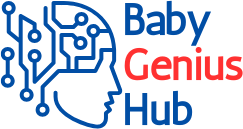As a human, it is clear that the foundation of all learning, behavior, and health in a child’s life emanates from early childhood education at any rate. By all means, these are the most critical formative years in terms of cognitive, emotional, social, and physical development, starting from birth and culminating at age eight.
Not only this much, ECE programs are structured explicitly with the objective of enabling children to go through this growth period with the help of structured learning, play, and social interaction. In order to assist young children in developing holistically, there are some significant issues called subjects in ECE. In this paper, we shall examine in detail the most critical 12 components of ECD.

1. Child Growth and Development
ECEs should familiarize themselves with how children develop so that they can work on the creation of optimal early learning environments for them. However, the major objective of this unit is to describe normal development in the areas of physical, cognitive, social, and emotional development, thus providing educators with what is normally expected of children to be able to recognize delays for early intervention.
To begin further in this topic, you must understand the early signs of developmental delay in your children. Firstly, make sure you understand all the delay signs first to help your children in their overall growth and development.
Topics include:
– Child development theories (Piaget, Vygotsky, Erikson)
– Stages of physical and motor development
– Language and cognitive development
– Social and emotional development milestones
2. Health, Safety, and Nutrition
A child’s health, safety, and nutritional requirements are the most critical requirements for that child to be able to learn and grow because his unit underscores the need to work towards maintaining a safe and healthy environment and fostering good nutritional habits at the same time.
Topics include:
– First Aid and Emergency Procedures
– Healthy, Safe Hygiene Practices
– Balanced Diet and Meal Planning
– Above all, Prevention of Illness in Children is the most
3. Observation and Assessment of the Child
The foremost ability that an early childhood educator should have is observation. Observations help teachers keep track of the children’s developmental progress in various settings and plan overall activities.
Topics to be covered in this unit include
– Methods of observation: anecdotal records, running records, time sampling
– Developmental checklists
– Lastly, Assessment and Individualized Educational Planning
4. Learning Environment and Curriculum Development
Firstly, setting up an environment that triggers learning is right at the heart of ECE. This unit lays focus on the area of designing spaces and planning activities that are developmentally appropriate presently.
Setting up child-friendly classrooms
– Play-based learning
– Planning curriculum on a daily and weekly basis, and themes
– Infusing other multicultural elements
5. Family and Community Engagement
As we already know, the success of the learner is dependent on their family. As an illustration, this unit will provide you with strategies on how to build strong partnerships with families and even those outside the family.
Covered Topics:
– Communication with Families
– Parental Involvement in Learning
– Mapping of Community Resources – Family Dynamics and Cultural Diversity
6. Infant and Toddler Development
In contrast, infants and toddlers have needs and require support vastly different from that which a preschool child may require. Not only this, but this unit of early childhood education will look at understanding and supporting the development of children from birth to three years.
In the list:
- Attachment and bonding
- Sensory and fine-motor development
- Onset of brain growth
- Application: Responding Care
7. Teaching the Young Child
As I have noted, many effective strategies of teaching differ from one age group and developmental level of the children to the other. In other words, there are several methods that shall support educators to come up with strategies that best fit into the category of learners as young.
Key components:
- Learning through play
- Scaffolding and guided discovery
- Storytelling, music, and art
- Group activity and transition management
8. Positive Guidance and Discipline
Young children are in the process of learning to regulate and behave accordingly. That is why this unit focuses on positive ways of guiding children’s behavior with what can be done and how to set appropriate limits.
- Positive Reinforcement Techniques
- Clear, Consistently Applied Rules
- Conflict-Resolution Techniques
- Knowing the Source of Hard Behavior
9. Equity and Inclusion in Early Childhood Education
Here, children enter the setting from different backgrounds, with a sense of belonging such that every child feels valued and supported. With this, the topmost area to focus on in this unit is the promotion of cultural competence following inclusive practices.
Key topics:
- Curriculum Development with Anti-bias Materials
- Valuing All Cultures and Languages
- Adapting Activities for the Diverse Needs of Children
- Build an Inclusive Classroom Community
10. Special Needs and Inclusive Practices
Children might need support with certain special needs, whether physical, cognitive, or emotional. Therefore, this unit will provide the knowledge and skills on how to adapt your teaching so that it is relevant to each learner. Key focus areas:
- Common Disabilities (autism, ADHD, physical impairment)
- Scaffold learning with the collaboration of special education professionals
- Implement Individual Education Plans
- Differentiated Instructional Techniques
11. Professionalism in Early Childhood Education
Provided that, there is a need for early childhood educators to meet the standards of professionalism. Also, this unit contains ethics, continued professional development, and sustaining professional demeanor.
In addition to this, this unit shows respect, responsibility, and a commitment to children’s well-being.
Topics to be treated include:
- Professional ethics and confidentiality
- The place of the reflective practitioner
- Professional communication skills
- Advocacy for the ECE profession
12. Administration and Supervision of Childcare Programs
Basically, this unit is important for those aspiring to administrative posts in the sector of childcare sector, as it is mandatory. After all, this unit will introduce you to basic knowledge of program management.
It also helps develop leadership and decision-making skills essential for supervising child care services effectively.
- Budgeting and Financial Management
- Staff recruitment and supervision
- Licensing regulations and compliance
- Marketing and Community Outreach
Conclusion:
In summary, these twelve units in early childhood education interrelate and synergize effectively toward that single common goal of nurturing a well-rounded, healthy, and competent young child. In the final analysis, all the units are effective if the young learners are to be affected by their formative experiences.
Therefore, the rest of the environment for the childhood educator gradually becomes child-friendly, packed with children who have the motivation to explore, learn, and grow as they do it on their own. Meanwhile, it cannot be refused that the time and efforts invested in the understanding and application of these core units will inevitably bring positive changes to the professionalism of teachers, which is paramount, and have a much greater effect on the lives of those children for whom they put in service, hence setting the stage for a truly promising future indeed.

